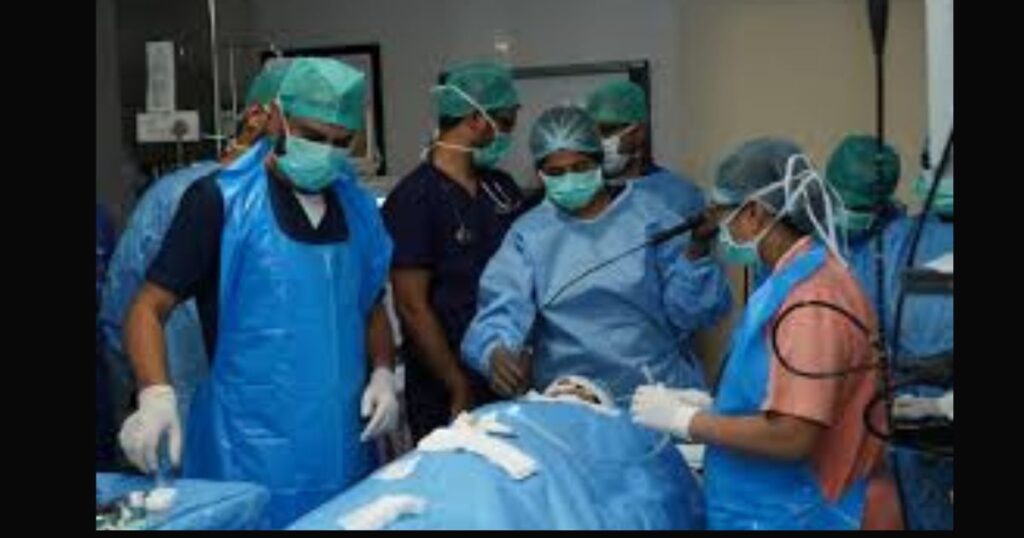Hyderabad, Telangana: A multidisciplinary medical team at Yashoda Hospitals, Hitec City, has successfully performed a rare and complex fetal intervention involving selective fetal reduction in a monochorionic twin pregnancy using single-tine cool-tip radiofrequency ablation (RFA) under ultrasound guidance.
The procedure was led by Dr. Navya, Senior Consultant – Fetal Medicine, and marks a significant milestone in fetal care in Hyderabad, being one of the first reported uses of this advanced technique in the region.
Managing High-Risk Twin Pregnancy
The case involved a 21-week gestation monochorionic twin pregnancy diagnosed with Selective Fetal Growth Restriction (SFGR) Type III, a condition in which one twin exhibits severe growth compromise due to unequal placental sharing. This poses significant risks to the healthier co-twin, including a 90% risk of co-twin demise and up to 60% risk of neurological damage if fetal demise occurs in utero.
In monochorionic twin pregnancies, complications such as SFGR, Twin-to-Twin Transfusion Syndrome (TTTS), and Twin Reversed Arterial Perfusion (TRAP) sequence are more likely to occur due to the shared placental vasculature. These cases often necessitate timely and advanced fetal interventions.
ALSO READ: UK Baby ‘Born Twice’ After Groundbreaking Cancer Surgery Saves Mother and Child
Use of Cool-Tip Single-Tine RFA
To protect the healthy fetus and prevent further complications, the clinical team employed single-tine cool-tip radiofrequency ablation (RFA) — a minimally invasive and targeted technique that uses thermal energy to interrupt blood supply to the affected twin under real-time ultrasound guidance.
“Given the advanced stage of SFGR and the deteriorating condition of one fetus, the use of cool-tip RFA allowed us to selectively reduce the growth-restricted twin, thereby significantly improving the chances of survival and neurodevelopmental outcomes for the co-twin,” said Dr. Navya.
This technique, considered safer than conventional options, is increasingly being used worldwide in high-risk monochorionic pregnancies where selective reduction becomes medically necessary.
Advancing Fetal Medicine in India
This successful intervention reinforces the capability of Indian healthcare institutions in providing state-of-the-art fetal interventions. The case also highlights the importance of early diagnosis, fetal monitoring, and timely referral to tertiary fetal medicine centers.
Yashoda Hospitals continues to establish itself as a center of excellence in high-risk obstetrics and fetal medicine, with a dedicated team of specialists trained in handling complex perinatal cases.


